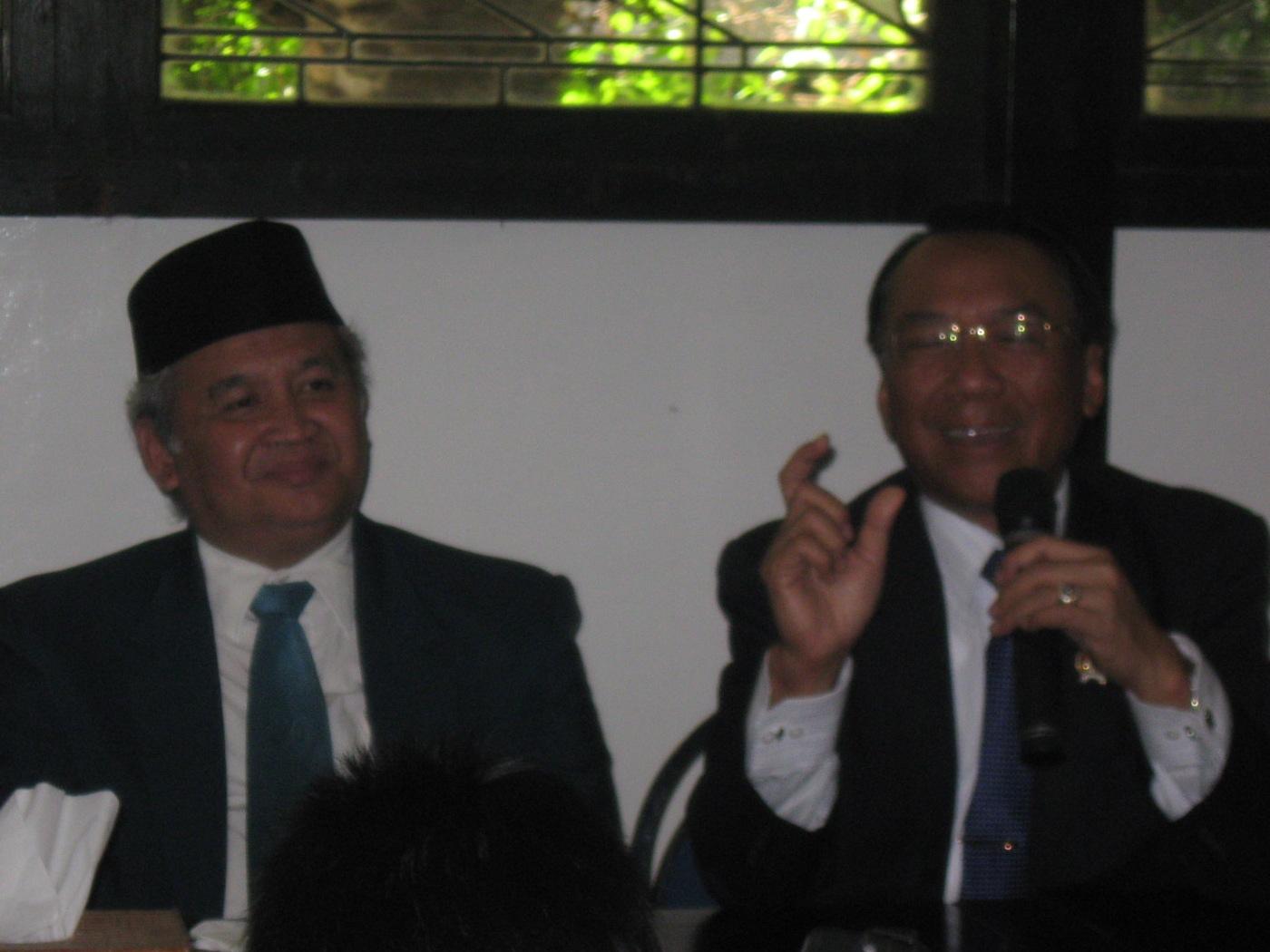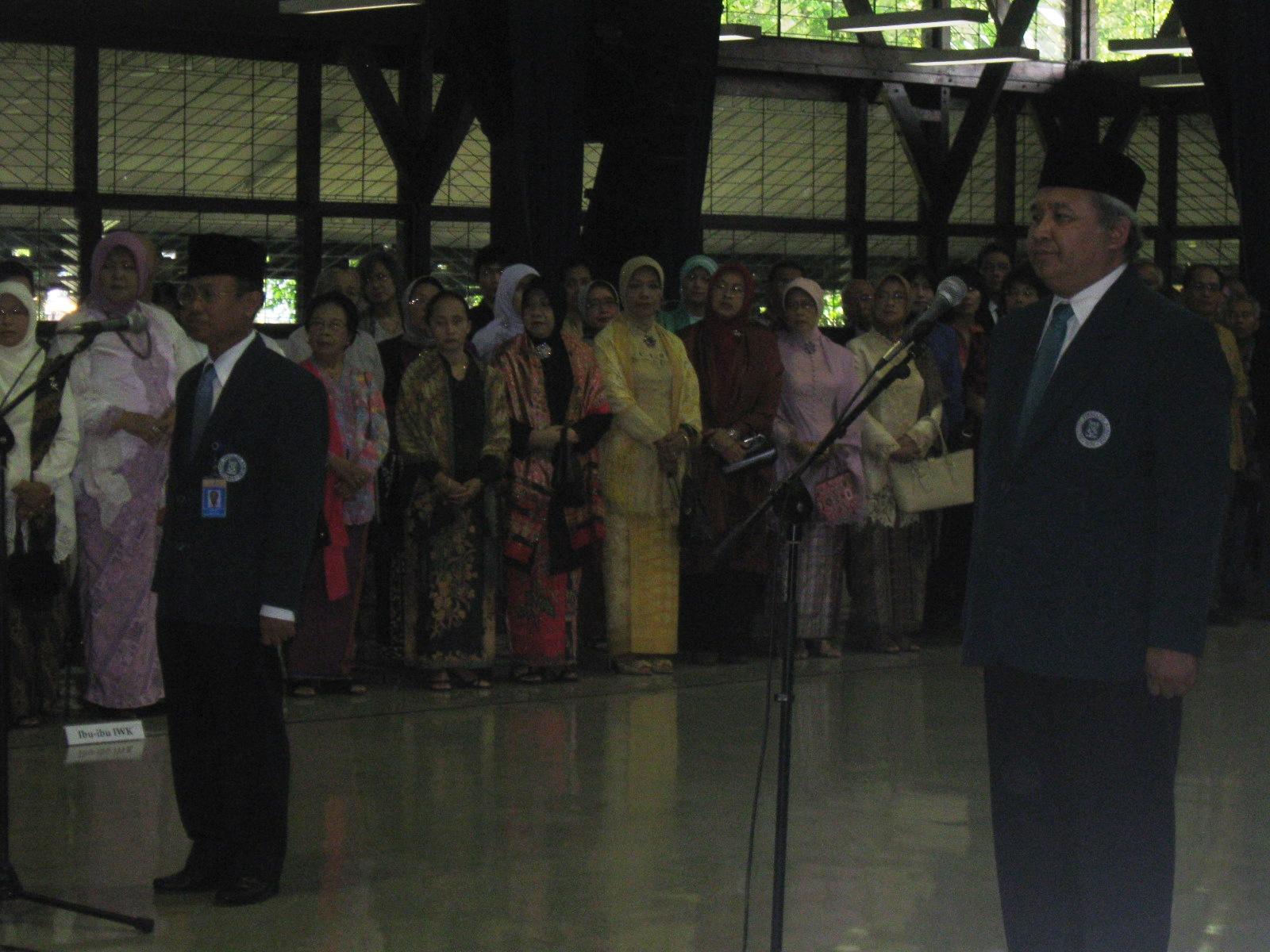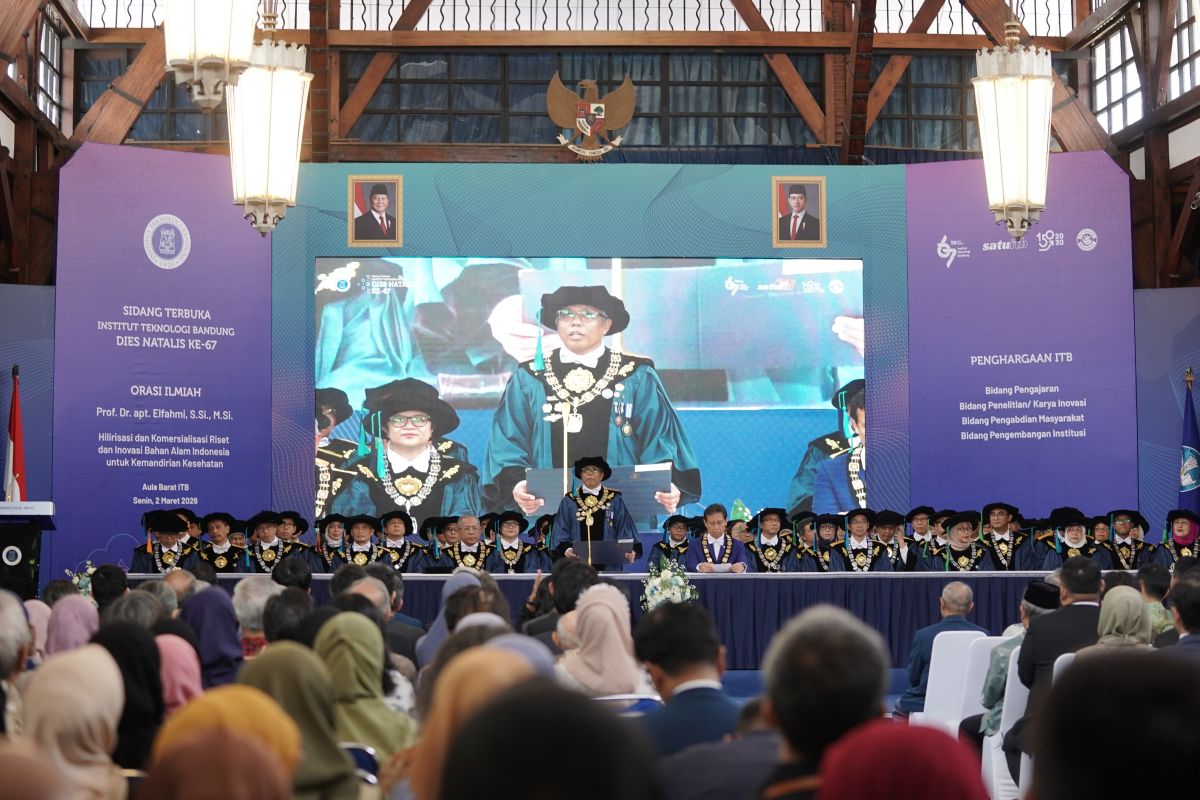ITB Academic Master Plan: The Forthcoming Objectives
By habiburmuhaimin
Editor habiburmuhaimin

 BANDUNG, itb.ac.id-ITB has just arrived into its new chapter. Prof. Dr. Akhmaloka has been officially inaugurated as Rector of ITB for the period of 2010-2014 by the Chairman of ITB's Board of Trustees (MWA), Ir. Yani Panigoro, MM. on Friday (29/02/10), in ITB East Auditorium. The upcoming vision, mission, and objectives have been arranged. The Academic Master Plan has been prepared and shared with the whole ITB academic society.
BANDUNG, itb.ac.id-ITB has just arrived into its new chapter. Prof. Dr. Akhmaloka has been officially inaugurated as Rector of ITB for the period of 2010-2014 by the Chairman of ITB's Board of Trustees (MWA), Ir. Yani Panigoro, MM. on Friday (29/02/10), in ITB East Auditorium. The upcoming vision, mission, and objectives have been arranged. The Academic Master Plan has been prepared and shared with the whole ITB academic society. In her speech, Yani Panigoro depicts ITB as miniature of Indonesian complexity and diversity. In this spirit of diversity, ITB is required to function as an agent of change as well as to devote to knowldege creation by producing the graduates that are of high quality. In order to achieve it all, strong commitment and dedication of the Rector and the entire academic body is of absolute requirement.
The Proposal for Campus Enlargement
Some of the arranged objectives are the continuation of those in the period when Prof. Dr. Ir. Djoko Santoso, M.Sc. was in charge of being the Rector of ITB (2005-2009). One of the agenda which is already existent in the period of Djoko Santoso is the enlargement of campus ITB.
"This plan (campus-enlargement) is created upon the intention to better facilitate all civitas academic of ITB" said Yani Panigoro. She also stated that this agenda has been included in the Academic Master Plan.
ITB Academic Master Plan
Academic Master Plan is ITB's first step in preparing its future objectives to develop into the recommended and eminent university in the field of science, engineering, and art, in Indonesia and Asia region. Using the framework of ITB teaching university, ITB advanced research university, ITB industrial research, and technopreneur university, ITB brings into play the spirit of development, quality improvement, and collective effort to contribute to the enhancement of Indonesia and humanity.
In an attempt to accomplish that, ITB has prepared four Objectives of Development. The first objective is to enhance ITB's academic excellence through education and research. This is achieved by encouraging the Research Group to have their research "icon" both in national and international scale, as well as having a monumental creation in the field of art, architecture, and engineering. Education programs S1, S2, and S3 in science, art, and engineering is constantly established and developed.
The second objective is to increase the involvement in generating highly-competent manpower. This can be accomplished by targeting to enlarge the student body capacity (S1, S2, and, S3 students) to as many as 20.000 students in 2014.
The third objective is to become the center of excellence of natural and applied sciences by arranging the investment plan of laboratory facility, operating the research networking with the center of research experts both in national and international level, and increasing the library collection.
The fourth objective is to have good campus facilities. The preparation of the new area outside Ganesha campus, along with improved facilities to sustain the activities of the people within it, is part of this objective. The newly-built campus has to strongly support the education, the research, and exposure to industry.
Nationalist World Class University  Akhmaloka's vision and mission is to transform ITB into nationalistic world class university, which means gaining an accomplished achievement in the international eye, as well as having concrete innovation for Indonesia. He is optimistic that ITB's lecturers and students have the potentials to achieve this target. However, stronger collaboration between the lecturers and the students needs to be taken place, to ensure that all components are going to the same direction.
Akhmaloka's vision and mission is to transform ITB into nationalistic world class university, which means gaining an accomplished achievement in the international eye, as well as having concrete innovation for Indonesia. He is optimistic that ITB's lecturers and students have the potentials to achieve this target. However, stronger collaboration between the lecturers and the students needs to be taken place, to ensure that all components are going to the same direction.
Alumni support is an important factor. In a press conference in Akhmaloka's inauguration, Jero Wacik, Ministry of National Culture and Tourism, who is also an ITB alumnus, emphasized that.
When being asked upon the program of 100 day-leadership, Akhmaloka says he does not intend to set up such agenda. He says, "What is now becoming our priority is to soon prepare the apparatus for ITB BHPP; to tidy up the transformation from BHMN to BHPP."
[Fathir Ramadhan]

.jpg)

.jpg)
.jpg)
.jpg)

